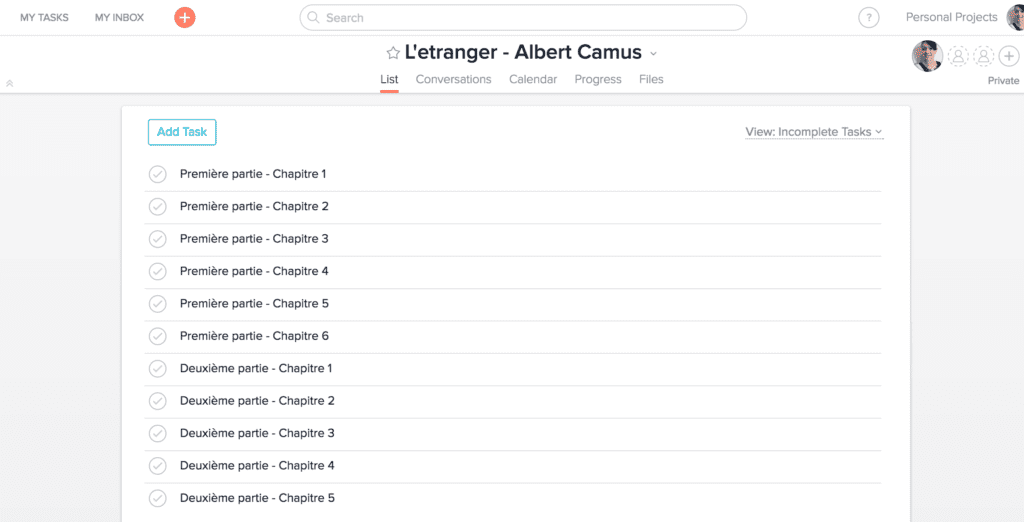How to Fight Language Learning Procrastination
Have you ever sat down to study your target language, gotten distracted and then before you know it the time you set aside to study is gone? Don’t worry, you’re not alone and it doesn’t mean you’ve fallen out of love with your language. We all suffer from language learning procrastination from time to time. You just need to make a decision: are you going to let it beat you and give up on your dream of being fluent, or are you going to fight?
In honour of Fight Procrastination Day on September 6th (no procrastinating with this post), we’ve put together a guide for fighting language learning procrastination.
English not your first language? Import and read this post on LingQ instead.
Change Your Focus

Learning a language can seem like an impossible task. With so many words, phrases, structures and sounds to learn it’s no wonder learners get overwhelmed. This can result in trying to get too much done in one sitting, and feeling like you’re doomed to fail if you don’t meet your targets each week. Then the doubts creep in: Who am I kidding? I can’t learn (insert language). If I can’t do enough each day, I’ll never become fluent so what’s the point? I might as well give up now and save myself the stress. Maybe I should take up flower arranging instead.
Stop right there! Language learning doesn’t have to be this stressful. It can actually be fun. Instead of your language study plan looking like this…
5 minutes – review yesterday’s 100 words
20 minutes – reading
15 minutes – journal writing
15 minutes – flashcard new words
5 minutes – cry into a pillow
… focus that hour or however long you might have on activities you enjoy. If you like to read the news in the morning, spend an hour reading it in your target language and saving new words and phrases as they come up. If you enjoy journaling, try writing about the previous day. Even if you’re a beginner who can only write basic structures, a writing activity like journaling will have you seeking out new vocabulary and ways to say things. This way you will be engaged in what you’re doing and much more likely to learn.
Of course, for some people a study plan like the one above is just what they need (hopefully minus the crying). Language learning, as with all types of learning, is personal. What works for others may not necessarily work for you.
Reward Achievement

Nothing motivates and staves off procrastination quite like the prospect of a treat, so start treating yourself! You deserve it.
If you study every day for a month, why not reward yourself with a new audiobook in your target language? If you’re likely to break your study pattern before a month is up, you could break it down week by week or even day by day. Promise yourself a fat slice of cake with your morning coffee after a study session, or order Indian food on Friday night after a week of meeting your targets (can you tell I always reward myself with food?). You may gain a few pounds with this method…
Keep Yourself Accountable

A great way to keep yourself accountable is to track your progress, and a great tool to use is Asana. The software allows you assign deadlines to tasks and it feels very satisfying to hit the little check mark when your study session for the day is complete and see a unicorn fly across the screen.
Right now I’m reading L’etranger (The Stranger) by Albert Camus on LingQ and tracking my progress on Asana. Here’s what the project looks like:

This is an intermediate 2 novel and I’m a low intermediate French learner, so I’ll give myself a few days to read a chapter, even though I’ve read the book in English. If I fail to read a chapter by the deadline, no salted caramel ice-cream for me. This is unthinkable, so I’m quit motivated to stay on track.
Get Rid of Distractions

You know how it goes: you sit down to study, book or computer in your lap, and then you spend the first 10 minutes checking your email or reading the news. To avoid this, only open what you’re working on, close all other tabs. If you aren’t working on a device, get rid of them – all of them. Put them on the opposite side of the room, in a closet, in a box filled with venomous snakes or whatever you need to do to keep them from distracting you. If you’re working on a computer, tablet or phone you could set a timer to keep you on task or install an app that blocks tempting websites (hello Facebook). I like to use Cold Turkey.
Keep it Challenging

One surefire way to invite procrastination into your language study is to stick with content that is too easy/boring. If you aren’t excited to get stuck into your material, you’ll put it off. To combat this, make sure you’re constantly challenging yourself with new and increasingly difficult content. Polyglot and LingQ cofounder Steve Kaufmann, who speaks 16 languages, believes that is staying with beginner material for too long. The sooner you’re able to get out of the boring beginner stuff and into content you find interesting the better.
Eyes on the Prize

Don’t forget to remind yourself of your end goal while studying. If your goal is to speak fluent Portuguese so you can travel to beautiful Brazil, put up pictures of the places there you want to visit. If you’re studying Russian so you can read Tolstoy in the writer’s mother tongue, keep a Russian copy of War and Peace on your desk. The hefty novel could also serve as a paperweight or weapon if there’s an intruder.
Hopefully this article didn’t distract you for too long. Now get back to studying!
***
Let LingQ help you fight language learning procrastination and lead you all the way to fluency.
Join a 90-Day Challenge today!
